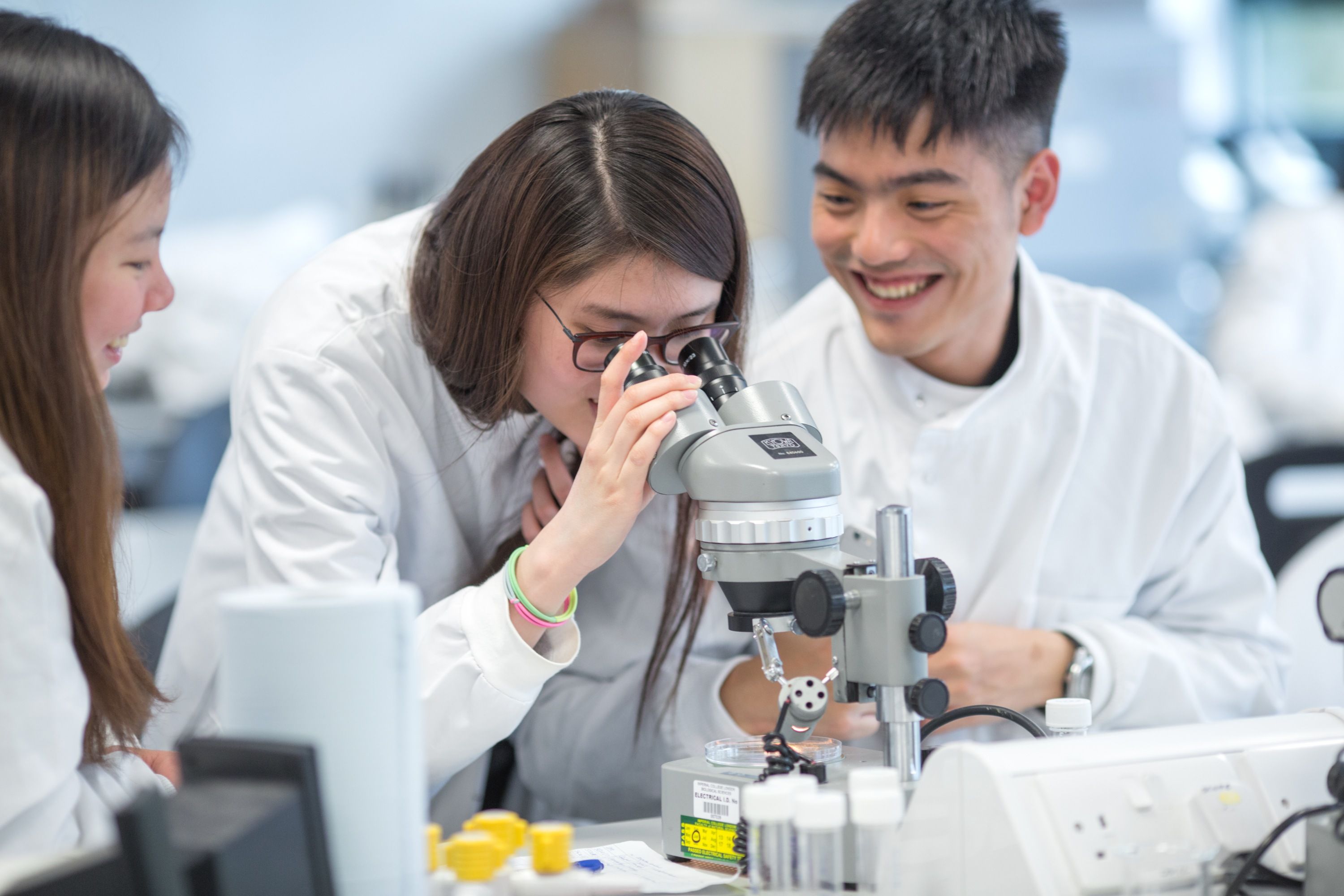
M.Sc Biotechnology Syllabus, Eligibility, Fee, Colleges, Job
- Science
Notification:

Table of Contents
M.Sc Biotechnology is a postgraduate degree course that focuses on understanding of the different techniques that is employed in the field of modern biology. It combines aspects from biology and other related fields and the latest technologies to produce products and solve issues in agriculture, health and the environment. As the industry of biotechnology is continuing to rapidly expand in India the area of work prospect for graduates with the M.Sc. degree in this field is great.
The M.Sc. Biotechnology program in India is offered for two years duration and the following competencies have been aimed at being developed in the students, enabling them to possess scientific and technological knowledge and skills. As part of the curriculum, theoretical classes are to be provided across various subjects, laboratory activities and research projects. For this reason, the students are well-positioned to acquire higher learning in fields such as genetic engineering, bioinformatics, molecular Biology and microbial biotechnology. The training also emphasises problem-solving and analysis abilities needed in the biotech business. With healthcare, agriculture and the environment changing, this curriculum produces graduates in biotechnology to assist the nation.
| Parameters | MSc Biotechnology Course Details |
|---|---|
| MSc Biotechnology Course Level | Postgraduate |
| MSc Biotechnology Course Duration | 2 years |
| MSc Biotechnology Course Fees |
Between INR 360 to INR 7.5 Lakh |
| MSc Biotechnology Admission Criteria | Entrance-Based/Merit-Based |
| MSc Biotechnology Eligibility Criteria |
a Bachelor's degree in BSc Biotechnology or an equivalent specialisation from a recognized university with a minimum 50% aggregate marks. |
| MSc Biotechnology Entrance Exams | CUET-PG, ICAR AIEEA, IIT JAM, AP PGCET, CPGET, etc. |
| MSc Biotechnology Popular Colleges | Banaras Hindu University, Delhi University, Jamia Millia Islamia, Jawaharlal Nehru University, etc. |
| MSc Biotechnology Job Profiles | Environmental or Safety Specialist, Marketing Manager, Business Development Manager, Research Associate, Clinical Research Centres, etc. |
| MSc Biotechnology Average Salary | INR 3 LPA |
| MSc Biotechnology Top Recruiters | Research firms, Chemical manufacturers, Hospitals, Educational institutes, Pharmaceuticals, Fertilizer manufacturers, etc. |
To get admission into M.Sc. Biotechnology, the candidate has to possess Bachelors degree in Biotechnology, Microbiology, Biochemistry or equivalent field. Perhaps admission requirements may vary from one institution to another but in general include:
The M.Sc. Biotechnology program in India typically lasts two years, divided into four semesters. Some of the universities in India also offer additional learnings through industrial training programs and summer internships.
Biotechnology graduates with an M.Sc. Biotechnology degree can pursue a range of careers within sectors of health, farming, and environmental conservation. The program provides education and training in both the research and applied sciences.
| Top Colleges List | Tuition Fee per year | College Category |
|---|---|---|
| Jamia Millia Islamia | INR 15,600 | Govt. College |
| Delhi University | INR 480 | Govt. College |
| Jawaharlal Nehru University | INR 432 | Govt. College |
| Jadavpur University | - | Govt. College |
| University of Hyderabad | INR 13,500 - 57,500 | Govt. College |
| Aligarh Muslim University | - | Govt. College |
| Calcutta University | - | Govt. College |
| UNIPUNE | INR 61,100 | Govt. College |
| Panjab University | INR 27,830 - INR 3.9 Lakh | Govt. College |
| harathiar University, Coimbatore | INR 1.5 - 2.2 Lakh | Pvt. College |
| Amity University Noida | INR 1.3 - 7.5 Lakh | Pvt. College |
| Chandigarh University | INR 2.96 Lakh | Pvt. College |
| Christ University Bangalore | INR 3.2 Lakh | Pvt. College |
| Graphic Era University | INR 1.94 Lakh | Pvt. College |
| Lovely Professional University | INR 3.20 Lakh | Pvt. College |
| SASTRA University | INR 80,000 - 2 Lakh | Pvt. College |
| Sathyabama Institute of Science and Technology | INR 5.40 Lakh | Pvt. College |
| SOA University | INR 2 - 5 Lakh | Pvt. College |
| Thapar University | INR 1.26 Lakh | Pvt. College |
| VIT Vellore | INR 1.2 - 3.8 Lakh | Pvt. College |
| MSc Biotechnology Semester I | |
|---|---|
| Advanced Biological Chemistry | Molecular Biology |
| Environmental Biotechnology | Cell Biology |
| MSc Biotechnology Semester II | |
| Genetic Engineering | Immunology Principles of Bacteriology and Virology |
| Plant Biotechnology | Exercises in Genetic Engineering |
| MSc Biotechnology Semester III | |
| Animal Biotechnology | Bioprocess Engineering & Fermentation Technology |
| Database Management and IPR in Biotechnology | Bioinformatics |
| MSc Biotechnology Semester IV | |
| Genomics and Proteomics | Biochemical and biophysical techniques |
| Exercises in Biochemical and Biophysical techniques | Nanobiotechnology |
The important subjects that students study for completion of M.Sc. Biotechnology are those that give them theoretical as well as practical knowledge and experience.
The further specialisations or studies that students of M.Sc. Biotechnology can undertake include the following.
The job prospects for M.Sc. Biotechnology graduates are vast, with biotechnology becoming an increasingly vital industry in India. Common sectors include:
Salaries for M.Sc. Biotechnology graduates in India depend on the job role and industry.
In addition, new and sophisticated tools and technologies may require graduates to acquire further professional education to be compensated more with a certain amount of paid work experience. Graduate wages would increase even more with this technique.
This is a beneficial and sufficiently diverse program that allows students to use the results of biological sciences to progress technology, M.Sc. Biotechnology. This program in India is adequately placed to drive forward research in areas of health care, agriculture and sustainable environment since the program offers firm academic base, vast research experience and a growing market of graduates.
How likely are you to recommend Medicaljagat.com to a friend or a colleague?